CARE Program Catalyzes Student, Professional Impact
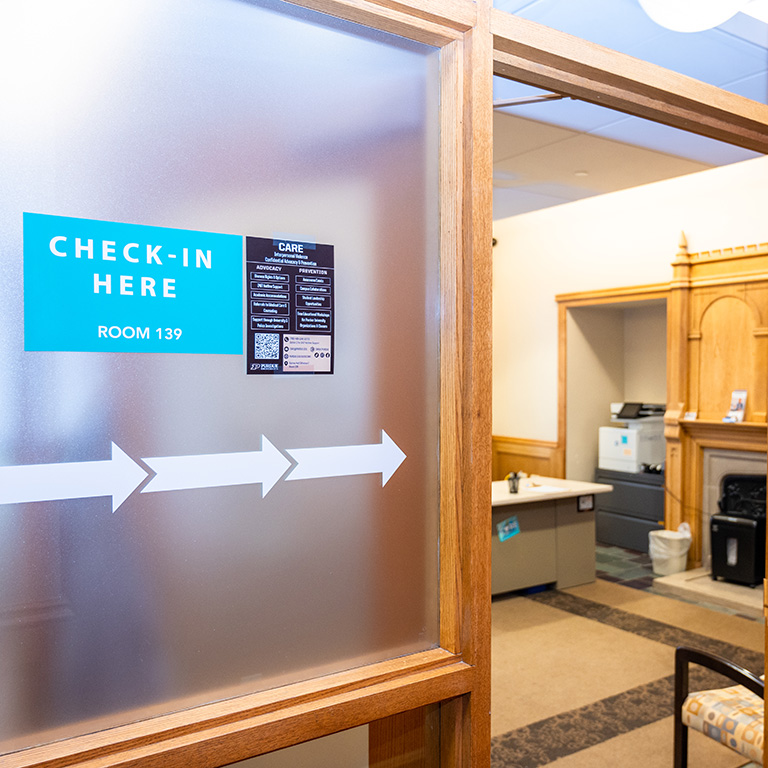
New funding and a student volunteer program have helped Boilermakers make an impact on campus culture as students and staff through the Center for Advocacy, Response and Education (CARE).
Thanks to financial support from the Office of the Provost, CARE has recently added two alumna – Amanda Shie, prevention programming specialist, and Lila Jerger, student support specialist – to support its mission to provide free and confidential advocacy services to students who have experienced interpersonal violence such as stalking, relationship violence, sexual exploitation and sexual violence. Shie and Jerger are both graduates of CARE’s educational ambassador (EA) program, which continues to provide critical support in delivering CARE programming.
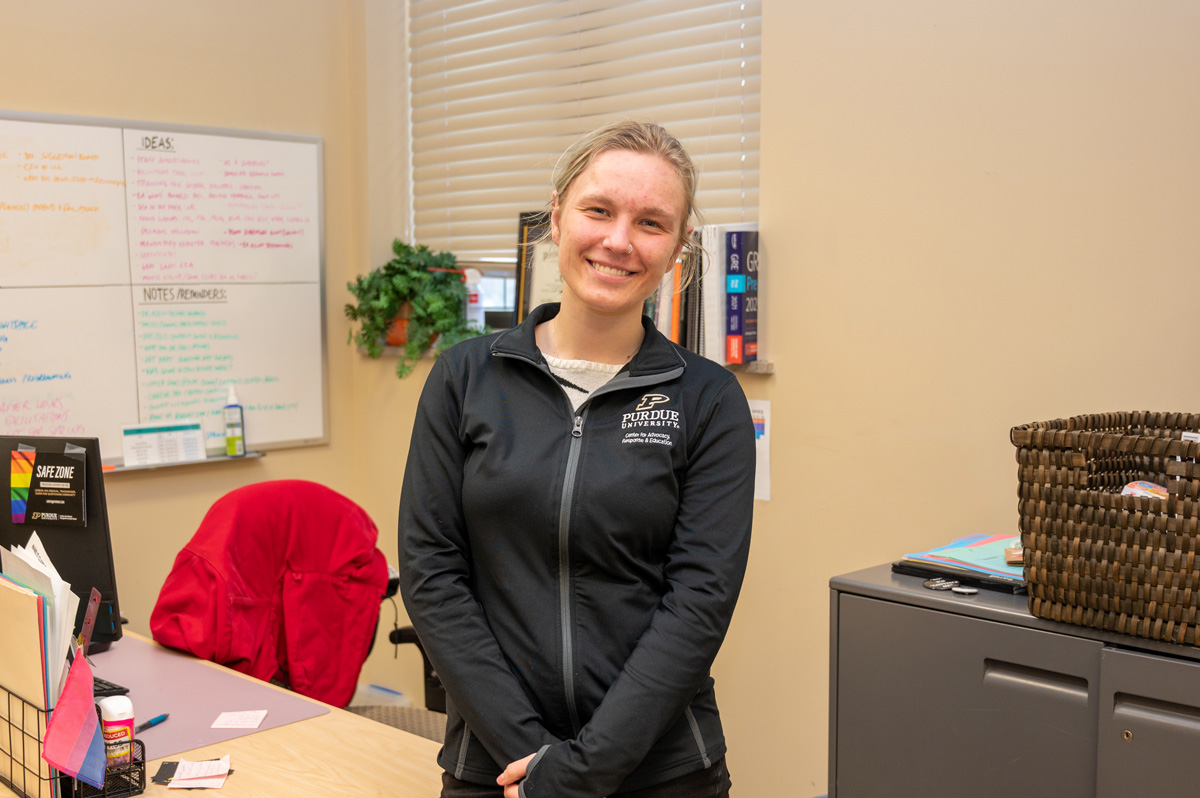
“I gave so much to the EA program as an undergrad,” Shie says. “I was always the one going to my other organizations to see if we could have CARE come do a workshop or get involved with an event. I love being able to turn around and now implement some of the changes I’ve thought about over the years.”
CARE boasts a team of approximately 30 EAs, who deliver workshops, help spread awareness through tabling events and assist in other areas of the department’s operations. EAs must complete 40 hours of training, which includes role-playing, education and team building. Students do not need to have used CARE services to serve as EAs.
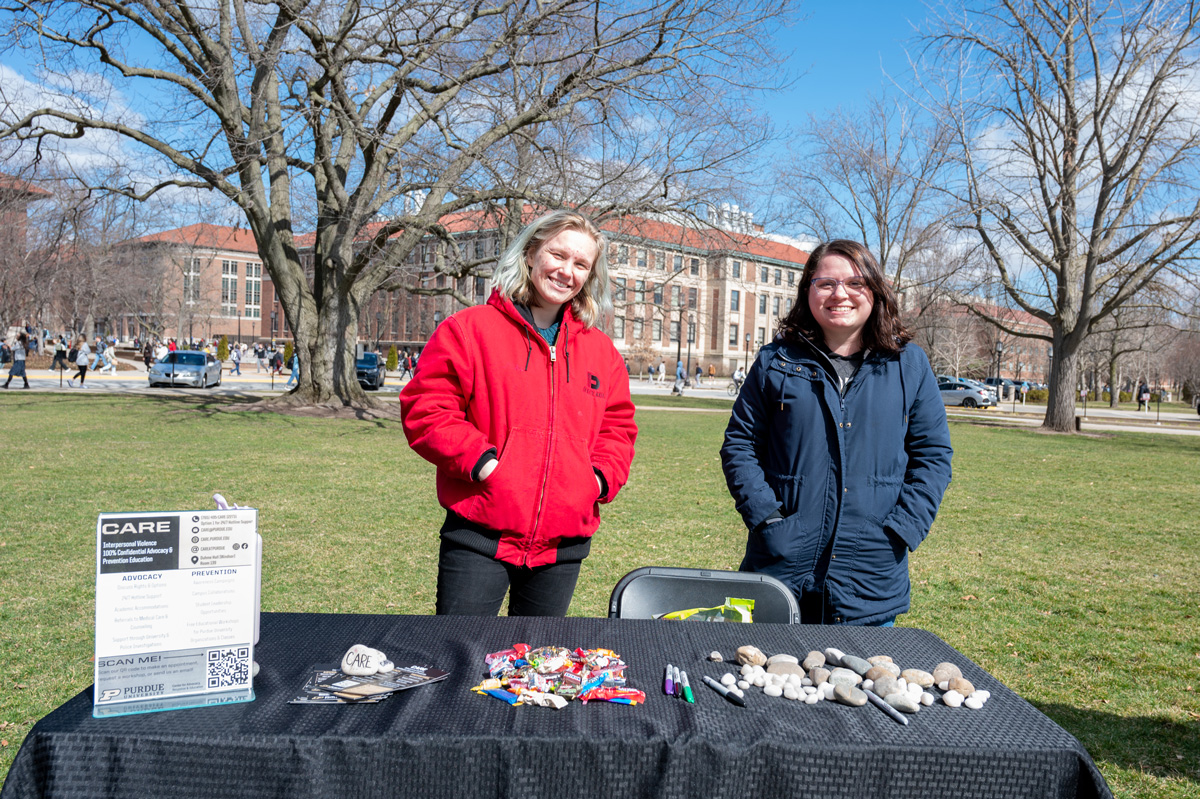 Many students are introduced to CARE for the first time at tabling events, particularly at callouts early in the school year. That was the case for Shie and Jackson Truitt, a current junior studying materials science. Truitt found CARE through a callout, discovered the organization’s message resonated with his values and decided to get involved.
Many students are introduced to CARE for the first time at tabling events, particularly at callouts early in the school year. That was the case for Shie and Jackson Truitt, a current junior studying materials science. Truitt found CARE through a callout, discovered the organization’s message resonated with his values and decided to get involved.
“I’d been to protests having to do with relationship violence and sexual assault here at Purdue,” Truitt says. “It’s not talked about enough and I think a lot of people are scared to approach it, too. Even men, who don’t experience the same overwhelming statistic of being assaulted and are typically the aggressors, can feel awkward about approaching it. I wanted to help.”
Due to her background as a nontraditional student and off-campus resident, Jerger’s connection to CARE didn’t begin until her senior year, when the organization visited one of her classes to deliver a workshop. Jerger says CARE’s mission connected with her academic and professional interests.
“I have always been passionate about the topics that CARE covers and had known for a while that I want to work with people going through things like this,” Jerger says. “As I went through my psychology courses and learned more about survivors and trauma, I knew I wanted to do this.
When I heard about CARE and the EA program, I knew I wanted to get involved even though it was my senior year – and they welcomed me.”
The EA team includes students from diverse educational pursuits and students of any field of study are welcome to join. Shie says she also found connections to her academic pursuits in political science and Asian studies.
“In a lot of ways, I found it very similar to my past experiences in political science,” Shie says. “Applying for grants, organizing campaigns and awareness activities were all things that were very familiar to me – it was just changing from civic engagement to preventing interpersonal violence. I was also an RA, worked with student government and had other extracurriculars that I was constantly connecting to.”
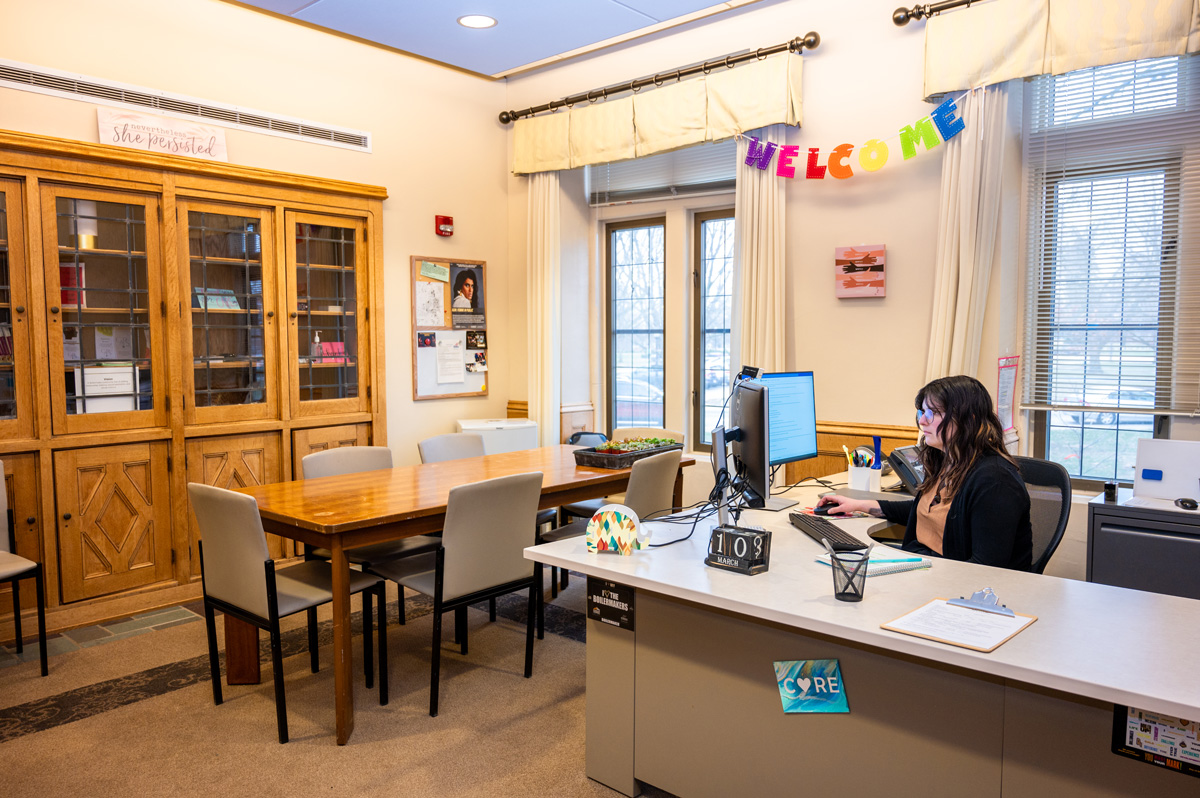
During their training, EAs learn the skills needed to answer sensitive questions that may arise during workshops and conversations about CARE services, and listen to disclosures empathetically. Brooke Reid, a junior studying economics and African American studies says CARE staff and training have helped her handle these tough conversations while taking into consideration what resources survivors may need.
“I’ve learned how to be inclusive in those conversations and how to make everyone feel comfortable,” Reid says.
“Also, learning a lot about what Purdue’s resources are to help people, what rights we have as students and how to access resources is helpful if anyone is disclosing to you.”
Reid says her experience as an EA has helped her think about her future academic pursuits and career plans.
“I’m really interested in doing economic research, especially intersectional research with African-American studies,” Reid says. “One thing that really interests me is how trauma, especially trauma that occurs in childhood, late adolescence or college affects future economic outcomes and career opportunities. This is really valuable to me in terms of getting awareness of what programs we have on college campuses to help improve that.”
EA alumni have used the interpersonal skills they’ve gained in the program in other pursuits ranging from internships to personal relationships. Shie calls the EA program the “launchpad” for most of her professional experiences and relates that she constantly referred to her experiences in the program while applying for jobs and internships – even those that were not connected to her career interests, such as a position at a veterinary clinic.
“The things we talk about when covering how to respond to a disclosure of interpersonal violence – for example, things like active listening and empathy – are things we can take anywhere,” Shie says. “Knowing how to disagree with someone in a way that doesn’t exclude them, and ways to communicate to different types and sizes of audiences are helpful. I can’t tell you how many times taking the advocacy approach to a conversation with my friends has been really helpful for me.”
As alumnae of the EA program, Shie and Jerger continue to translate the skills they’ve built in ways that directly impact Purdue students and the campus community. When the opportunity to pursue a career with CARE arose, Shie and Jerger each found positions in which they can use their strengths to help those in need.

In her role as a student support specialist, Jerger focuses on advocacy work, which typically entails confidential discussions with survivors with an emphasis on connecting them with appropriate resources – if that’s what an individual wants. These resources can include academic accommodations, counseling sessions, community protection, university no-contact directives and/or medical attention.
“I’ve had students come in a couple of days after something happened and they’re still processing what happened,” says Jerger. “Maybe they haven’t come to a conclusion about how they want to label what they’ve experienced, but they need someone to talk to and that’s what we’re here to do – we’re here to help them process what they’ve experienced in a confidential space, validate their feelings and experience, and then help them determine what they may want to do. We tell them everything that is available to them without forcing them to take action if they’re not ready yet. We are here to put the power back in their hands so they can make the decision that’s best for them.”
The nature of Jerger’s work results in significant and personal connections with survivors.
“I’m a very one-on-one person,” Jerger says. “Due to my own past and people who have come to me about situations they have been through, I knew that I really wanted to work with people one-on-one to be able to help them through the process of their own healing.”
Shie now serves as the coordinator of the EA program. One of her goals is to expand the program beyond tabling and presenting to include opportunities to participate in focus groups, administer surveys, collect feedback, market CARE services and assist with daily CARE operations. Shie’s personal connection to her experiences as a student helps fuel her passion and ideas for the evolution of the program.
“My favorite part of this is I get to watch learning happen right in front me,” Shie says. “I love seeing that happen because it’s so instrumental in helping reduce violence later on and making us better community members.”
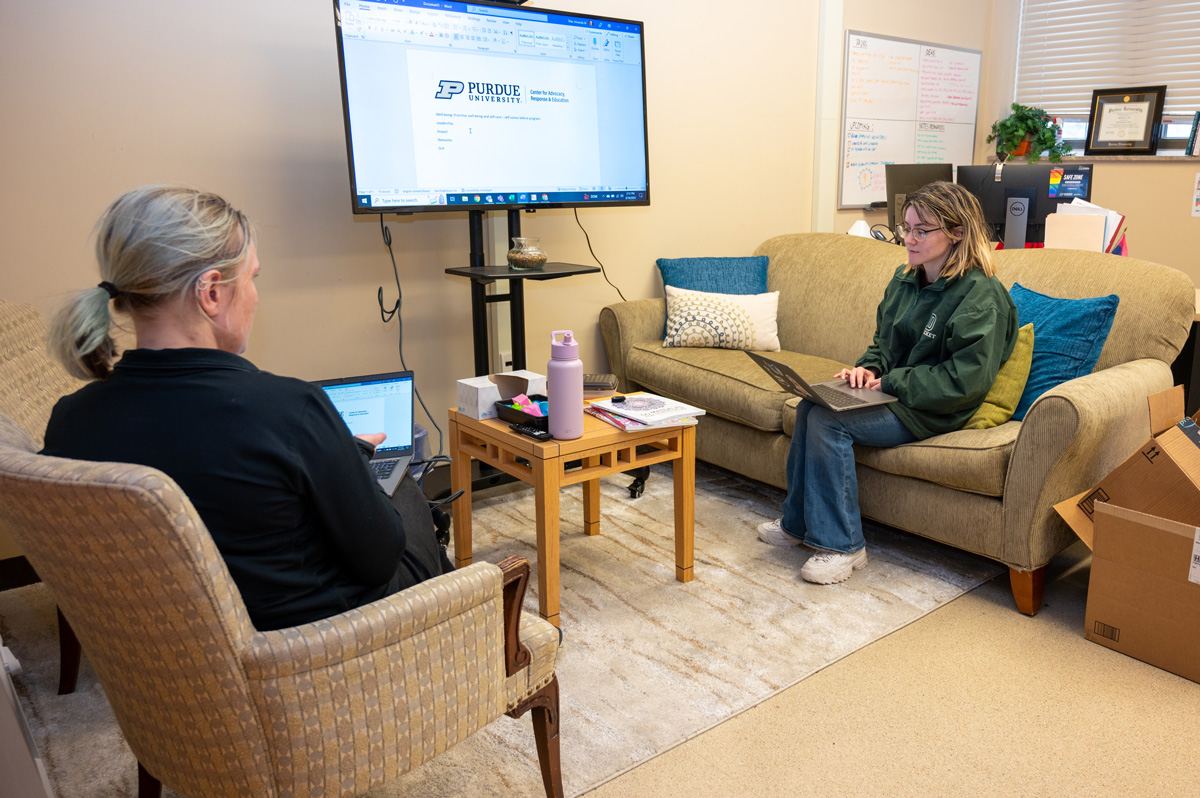
CARE and EA volunteers are in the process of creating events and upcoming educational programming to raise awareness of interpersonal violence and resources on campus. A recent “green flags” event for Valentine’s Day allowed students to write messages that promoted positive behavior in relationships on cards to send to their peers. CARE will also host an upcoming art show for survivors and allies, scheduled for April 24, and is planning educational programming related to the Red Zone, the time between the beginning of the semester and Thanksgiving break during which more than 50 percent of sexual assaults occur.
Truitt, who says he is hoping to become more active within the EA program in the coming months, says he is looking forward to new ways to engage his peers on the topic – particularly concerning the Red Zone.
“I think that’s one of the most important things that we can do because freshmen are more susceptible to interpersonal violence,” Truitt says. “They may not know the culture here or fully understand what’s happening, so they may take more risks.
Victims may not know they are at risk and even perpetrators may not fully understand what they’re doing. It’s important we tell people what a safe relationship looks like and help them understand precautions they can take to keep themselves and their friends safe.”
Through the EA program, CARE has created an opportunity for Boilermakers to make an impact on the campus community as students and staff.
“It’s a dream come true to be able to do something impactful and really feels like I’m making a difference, even if it’s just in a few students’ lives,” Jerger says. “To know I’m doing it on the campus that contributed to me and my growth, and that I can now feed into the students here is humbling,”
Students interested in the educational ambassador program can fill out a program interest form. Interviews will take place during the spring semester and a portion of online training will be assigned to be completed during the summer.
CARE provides free and confidential advocacy services to students who have experienced interpersonal violence such as stalking, relationship violence, sexual exploitation and sexual violence. CARE provides non-judgmental and survivor-focused services to empower survivors to make informed decisions that help them heal. As part of its mission, CARE develops student leaders to assist with campus-wide prevention education.
 .
.